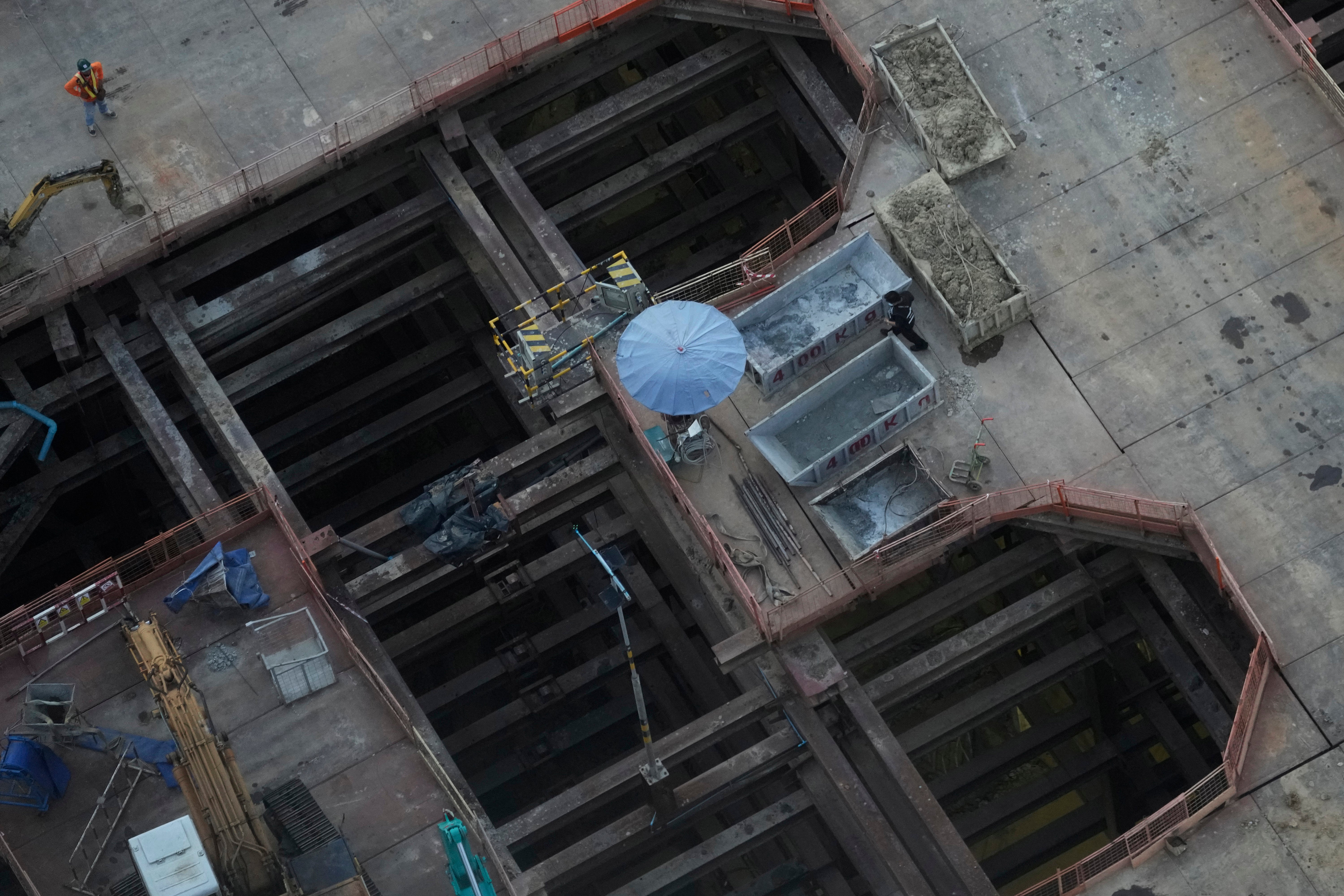Thailand isolates construction workers to curb virus spread
Thailand's government has ordered a one-month lockdown of camps where construction workers are housed in Bangkok and nine other areas as it struggles to slow the country's worst wave of coronavirus infections

Your support helps us to tell the story
From reproductive rights to climate change to Big Tech, The Independent is on the ground when the story is developing. Whether it's investigating the financials of Elon Musk's pro-Trump PAC or producing our latest documentary, 'The A Word', which shines a light on the American women fighting for reproductive rights, we know how important it is to parse out the facts from the messaging.
At such a critical moment in US history, we need reporters on the ground. Your donation allows us to keep sending journalists to speak to both sides of the story.
The Independent is trusted by Americans across the entire political spectrum. And unlike many other quality news outlets, we choose not to lock Americans out of our reporting and analysis with paywalls. We believe quality journalism should be available to everyone, paid for by those who can afford it.
Your support makes all the difference.As Thailand struggles to slow its worst wave of coronavirus infections, Prime Minister Prayuth Chan-ocha announced Friday a one-month lockdown of camps where construction workers are housed in Bangkok and nine other areas.
The situation has become critical as the number of hospital beds in Bangkok for seriously ill COVID-19 patients runs short despite the creation of several field hospitals. Prayuth said a proposal for a seven-day curfew for all of Bangkok has been rejected for the time being.
More details of new measures will be released over the weekend, the prime minister said, acknowledging that “people will have less convenience during this period.”
Construction workers will be isolated in camps in Bangkok and five neighboring provinces, and in the country’s four southernmost provinces, all virus hotspots. Prayuth said the Labor Ministry will provide living expenses for the workers, both Thais and foreign migrants.
Bangkok currently has 107 virus clusters, mainly in crowded communities and at construction camps, factories and markets, said Apisamai Srirangsan, deputy spokesperson for the government’s Center for COVID-19 Situation Administration.
She said it was a bad sign that 25 of the clusters have been active for more than 28 days.
Additional measures under consideration include closing off high-risk areas, isolating areas with people considered high-risk such as migrant workers, and limiting dangerous activities, she said.
The government is also mobilizing military medical staff and recent medical graduates from other provinces to assist in the Bangkok area. The military already has helped set up field hospitals.
Health authorities on Friday announced 3,644 new cases, bringing the confirmed total to 236,291, including 1,819 deaths, since the pandemic started. The most recent wave of infections which started in early April accounts for about 88% of the total cases and 95% of the deaths.
Officials said public hospitals in Bangkok currently have only 23 acute-care beds available for COVID-19 patients in serious condition, while private hospitals have 108.
Bangkok’s public Chulalongkorn Hospital suspended COVID-19 testing for four days starting Thursday because it has no beds for COVID-19 patients, said Thiravat Hemachudha, a medical professor at Chulalongkorn University. Health regulations decree that patients who test positive for the virus must be admitted.
Thailand has administered around 8.66 million vaccine doses, with around 9% of its 69 million people receiving at least one shot. Critics charge that Prayuth’s government failed to secure timely and adequate vaccine supplies. He says Thailand now has agreements that will ensure enough vaccine for about 70% of its population by the end of the year.
Authorities, meanwhile, are planning to go ahead with a plan to allow fully vaccinated foreign tourists to visit the southern resort island of Phuket without undergoing a 14-day quarantine that is otherwise mandatory. Thailand is anxious to begin the recovery of its lucrative tourism industry, which has been devastated by the pandemic and consequent travel restrictions.